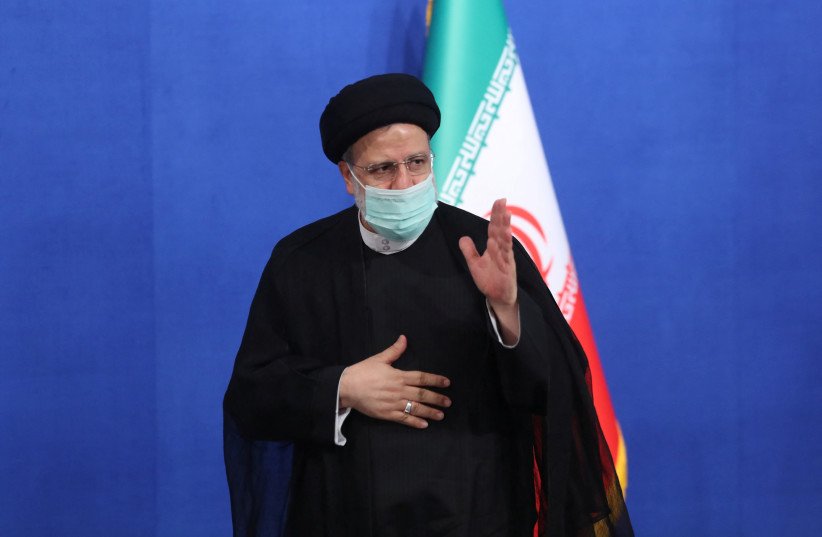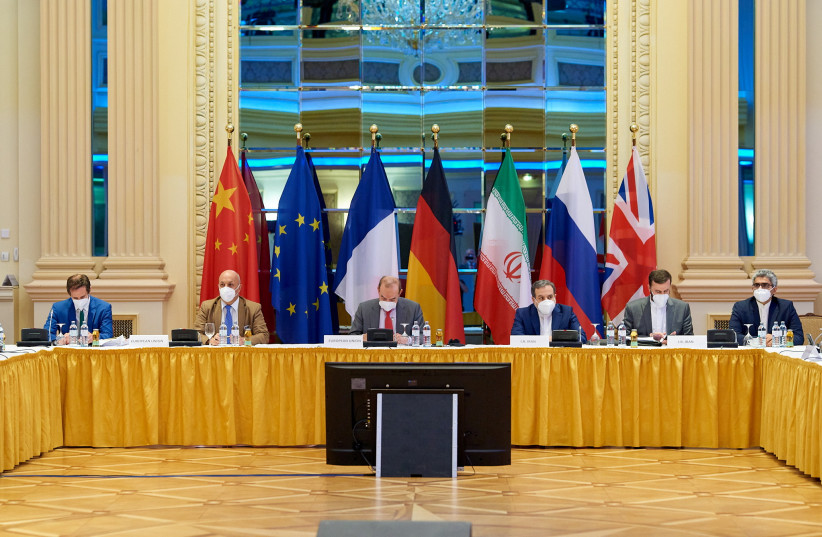“There’s never a last card to play; Israel will play any possible card in order to convince the Americans not to’ sign a new JCPOA, Israeli brigadier general tells TML.

The Mossad intelligence agency chief David Barnea will visit Washington next week as part of Israel’s attempts to dissuade the US and other Western powers from signing the deal. Barnea will be the third senior Israeli official to do so in recent days after both Defense Minister Benny Gantz and national security adviser Eyal Hulata also visited Washington in the last week.
As the revival of the nuclear deal with Iran looms ever closer, Israel is putting all of its efforts into persuading the US administration to not return to the Joint Comprehensive Plan of Action (JCPOA), the nuclear agreement between Iran and the world powers, under the proposed conditions. The deal was originally signed in 2015 by the administration of President Barak Obama; the US withdrew from the agreement in 2018 under the administration of President Donald Trump.
Ashley Perry, a global communications strategist and a former senior adviser to Israeli government ministers, told The Media Line that it is clear that Israel is extremely worried about a return to the JCPOA because of what it understands to be in the agreement, much of which has already been released to the media. Israel also has other ways of staying abreast of what is in the yet unannounced deal, he said.
Brig. Gen. (res.) Yossi Kuperwasser, director of the Project on Regional Middle East Developments at the Jerusalem Center for Public Affairs, former director-general of the Israeli Strategic Affairs Ministry, and head of the Research Division of the IDF Military Intelligence Directorate, said Israel will keep making efforts and play any possible card in order to convince the Americans to not return to the deal.

“As long as the deal is not concluded we shall make an effort, definitely the Mossad chief’s visit is a main card, it’s one of our aces,” Kuperwasser told The Media Line, adding that Prime Minister Yair Lapid is trying to speak personally with President Biden. “There’s never a last card to play; as long as they have not concluded the deal, Israel will play any possible card in order to convince the Americans” not to sign a new JCPOA, he also said.
Kuperwasser explained that Israel is directing its message to every corner of the US administration and that the head of the Mossad likely will meet with the chiefs of the intelligence community.
Perry’s statements
Perry added that Israel’s intelligence agencies will be presenting a large amount of information that it has on how Iran has abrogated the deal in the past and how it will not honor the deal in the future, in addition to facts to which the US and its allies should be paying special attention.
He noted that Israel is concerned about the nuclear deal because it believes that it is not a pathway to prevent Iran from acquiring nuclear weapons capability and that Israel has been successful in changing US views on some of the major issues ahead of a return to the deal.
For example, he said, “when the US was considering taking off the Revolutionary Guards from the terrorist watchlist, Israel brought a lot of information to show how that would be dangerous, also the Revolutionary Guards’ involvement in attempted assassinations around the world, their attempts to destabilize the region, and their involvement in Iranian proxy wars whether they’re in Yemen, Iraq, Lebanon, Syria, or elsewhere.”
Kuperwasser says that even though Israel is invested in making the best effort possible to convince the US that rejoining the deal would be a mistake, it appears that the Americans are extremely determined to go back to the deal because they want to avoid any need to confront Iran at this point.
“They have some commitment to the previous Obama-Biden Administration and that is why they want to go back to this agreement regardless of the dangers that are embedded in it,” he said.
In 2015, when Israel had a lot of criticism of the deal and shared their concerns with the US, the Americans said that they appreciated how important the comments were, and then omitted and ignored them when the deal was concluded, Kuperwasser said.
“I don’t think that this time, too, we can expect a different attitude from the Americans, I think that they are going to listen, and then do what they want to do,” he added.
Perry said that “Israel is telling the Americans and other Western powers that it has that military capability that is not bound by this agreement and if it feels that Iran is moving even closer to nuclear weapons capability, that could be for some in Israel a casus belli to take some of those actions that it is preparing for.”
He added that Iran doesn’t necessarily have to procure an actual bomb, just the capability to produce one could change the shape of the region.
“Israel is telling the Americans and other Western powers that it has that military capability that is not bound by this agreement and if it feels that Iran is moving even closer to nuclear weapons capability, that could be for some in Israel a casus belli to take some of those actions that it is preparing for.”
Ashley Perry
Kuperwasser noted that, technically, Israel may have the ability to hold Iran back from reaching the capability to produce nuclear weapons but taking such a decision is not going to be easy since it will mean some sort of confrontation between Israel and the United States. “We think these kinds of strategic relations that we have with the United States are extremely important for our security,” he added.
“I think that Israel is going to continue to develop capabilities to keep the Iranians away from having the capability to produce nuclear weapons. It’s not easy and it’s becoming even more difficult with the agreement,” he said.
Content retrieved from: https://www.jpost.com/middle-east/article-715951.